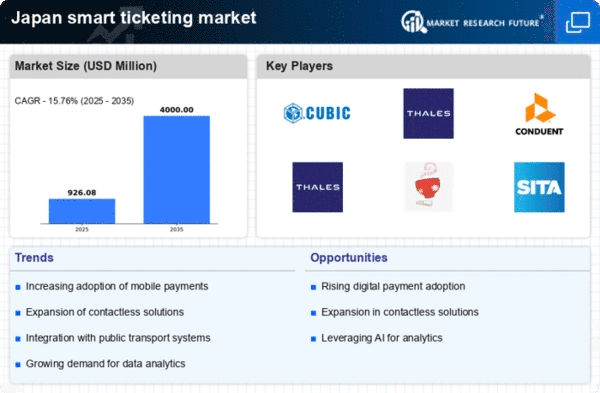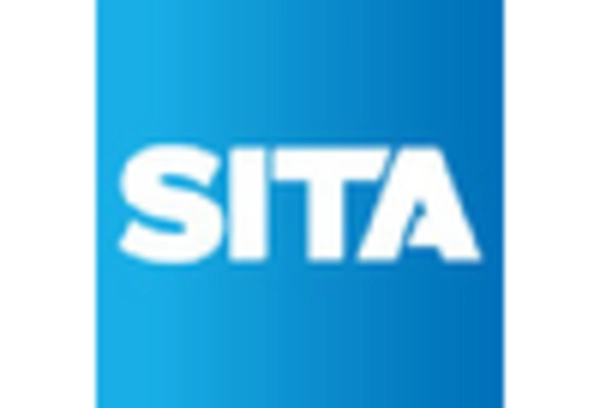Government Initiatives and Support
Government initiatives play a crucial role in the expansion of the smart ticketing market in Japan. The Japanese government has been actively promoting digital transformation across various sectors, including public transportation. Initiatives aimed at enhancing infrastructure and encouraging the adoption of smart technologies are likely to bolster market growth. For instance, the government has allocated approximately ¥100 billion for the development of smart transport systems by 2026. This funding is expected to facilitate the implementation of advanced ticketing solutions, thereby increasing efficiency and user satisfaction. Additionally, regulatory frameworks that support the integration of smart ticketing systems are likely to create a conducive environment for market players, further driving the growth of the smart ticketing market.
Consumer Preference for Convenience and Speed
The evolving consumer preferences in Japan are driving the smart ticketing market towards greater convenience and speed. As lifestyles become increasingly fast-paced, consumers are seeking solutions that minimize wait times and enhance travel experiences. The smart ticketing market is responding to this demand by offering solutions such as mobile ticketing and automated fare collection systems. Recent surveys indicate that approximately 80% of commuters prefer using mobile applications for ticket purchases, highlighting a clear shift towards digital solutions. This trend suggests that market players must prioritize user-friendly interfaces and efficient transaction processes to remain competitive. The focus on convenience is likely to propel the growth of the smart ticketing market, as it aligns with the expectations of modern consumers.
Technological Advancements in Payment Systems
The smart ticketing market in Japan is experiencing a surge due to rapid technological advancements in payment systems. Innovations such as Near Field Communication (NFC) and mobile wallet integration are enhancing user convenience and efficiency. As of 2025, it is estimated that over 70% of transactions in public transport utilize contactless payment methods, indicating a strong shift towards digital solutions. This trend is likely to continue, as consumers increasingly prefer seamless payment experiences. Furthermore, the integration of Artificial Intelligence (AI) in ticketing systems is optimizing operations and improving customer service. These technological developments are pivotal in driving the growth of the smart ticketing market, as they cater to the evolving preferences of tech-savvy consumers in Japan.
Integration of Multi-Modal Transport Solutions
The integration of multi-modal transport solutions is emerging as a key driver for the smart ticketing market in Japan. As cities strive to create seamless travel experiences, the ability to use a single ticket across various modes of transport, including trains, buses, and bicycles, is becoming increasingly important. This integration not only enhances user convenience but also encourages the use of public transport, thereby reducing traffic congestion. In 2025, it is anticipated that over 60% of urban commuters will utilize multi-modal transport options, necessitating the development of comprehensive smart ticketing systems. Such systems are likely to facilitate smoother transitions between different transport modes, ultimately driving the growth of the smart ticketing market.
Growing Urbanization and Public Transport Demand
Japan's increasing urbanization is significantly impacting the smart ticketing market. As urban populations expand, the demand for efficient public transport solutions rises. In 2025, it is projected that urban areas will account for over 90% of the country's population, leading to heightened pressure on public transport systems. This scenario necessitates the implementation of smart ticketing solutions to streamline operations and enhance user experience. The smart ticketing market is likely to benefit from this trend, as transport authorities seek to adopt technologies that facilitate smoother passenger flow and reduce congestion. Moreover, the integration of smart ticketing with real-time data analytics can provide valuable insights into passenger behavior, further optimizing service delivery.
















